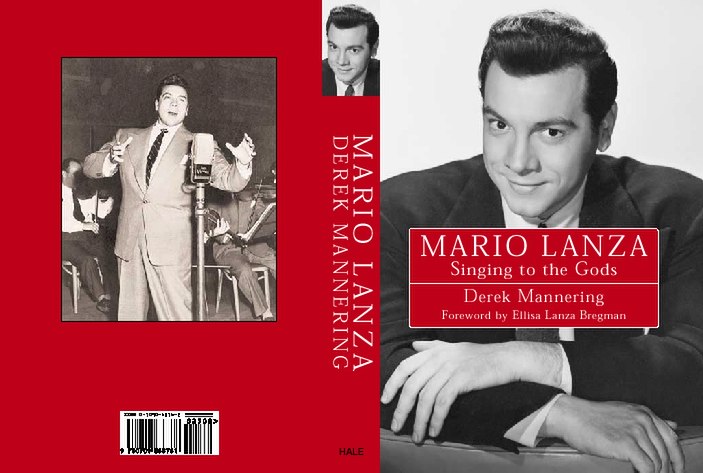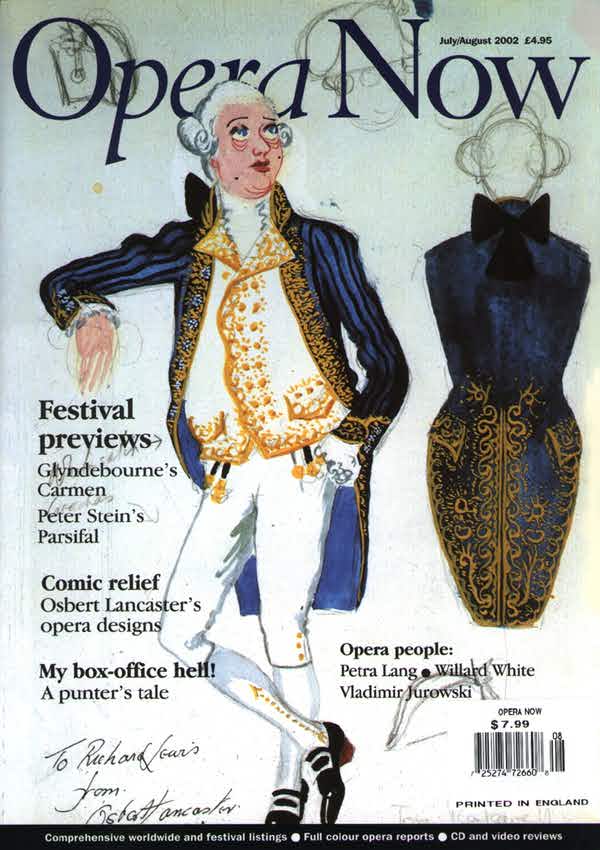- MARIO LANZA
Singing to the Gods
- by Derek Mannering
- Published by Robert Hale
- ISBN 0-7090-6876-X
-
-
- Click Book For More

-
- Opera Now
- Review By Richard Fawkes
- July/August 2002
-
- Mario Lanza may have died over 40 years
ago but the legend and the magic live on. In an age when singers with only
a modicum of talent can become household names if they have a record company
behind them, one might be forgiven for thinking Lanza was the first to
be hyped into superstardom. After all, the man billed as an American Caruso
only ever sang live two performances of Butterfly. He was a movie star
who sang a few arias and pressed the self-destruct button.
-
- But as Mannering's new biography vividly
illustrates, Lanza had a voice that astonished all who heard it live (including
such eminent musicians as Richard Bonynge), and, through films and records,
had an immediate rapport with millions around the globe.
-
- This is a rewritten version of Mannering's
1991 biography containing some 40 photographs, many quite rare. The earlier
work was a fine account of Lanza's life, laying to rest such myths as Lanza
being killed by the Mob. The revised book is not, however, the same material
with new bits tacked on. While it follows the same chronological shape,
Mannering has rewritten much of it, incorporating new research by himself
and others including Roland Bessette, who produced his own Lanza biography
in 1999. Mannering uses Bessette as a source of Lanza's contractual dealings
but doesn't utilize his explanations as to why Lanza went on his frequent
eating and drinking binges. He's also talked it seems to everyone who ever
went near Lanza. The result is a detailed but colourful account of a colourful
life full of interesting new tidbits. For example, Lanzaphiles have for
years scoured scenes of Winged Victory, the Moss Hart wartime epic, to
glimpse Lanza's first screen appearance in the chorus. It now appears he
may not have been there since he was fired from the picture for not turning
up, following several all-night parties.
-
- Only once does the author strike a false
note when, just before Lanza made his first film, Mannering suggests he
deliberately abandoned his potential operatic career for Hollywood because
films would bring opera to a wider audience. No evidence is offered for
what has to be only conjecture. There's no doubt Lanza did harbor thoughts
of returning to the operatic stage even if those who knew him also knew
he never would. It was Robert Merrill, meeting Lanza before the Hollywood
Bowl appearance that made the world sit up, who commented that Lanza would
never make it as an opera singer; he was too scared of being on stage.
-
- Lanza was 38 when he died, his career
having lasted a brief 10 years. And yet he was one of the most influential
singers who ever lived. His own life-story of the poor boy who made it
and threw away everything through his inability to curb his excesses, would
in itself make a remarkable movie.
-
- Mannering succeed triumphantly in bringing
the man and his music to life. More importantly, he makes you want to listen
again and again to the recordings and marvel again at the enormous talent
Lanza possessed while also shedding a tear at what might have been.
-
-- Richard Fawkes
|



